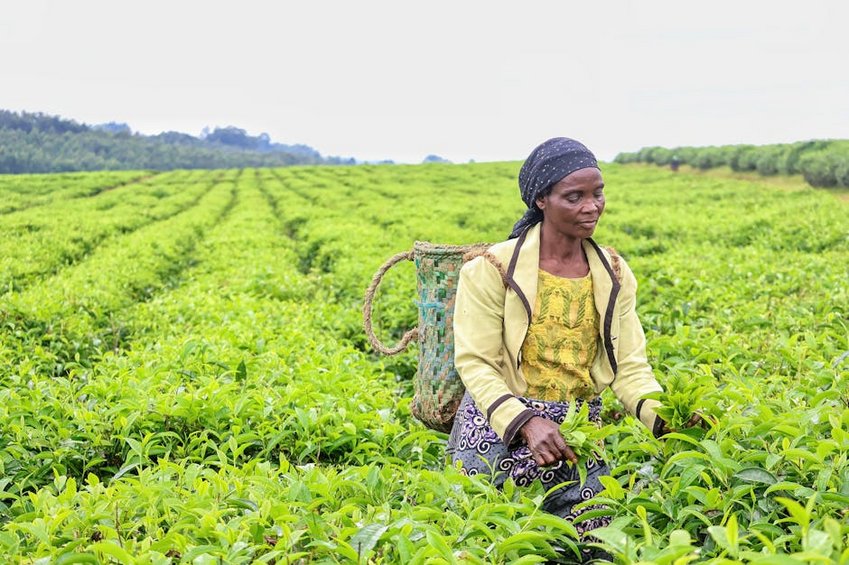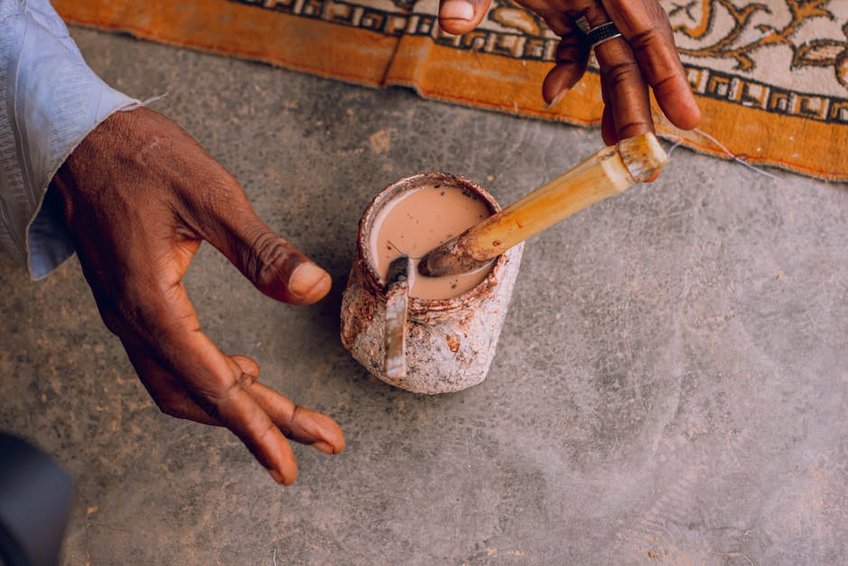Yoga Among African Tea Plantations: A Journey of Serenity and Flavor
Imagine starting your day with sun salutations as the first light dances across endless emerald-green tea terraces, the crisp mountain air filling your lungs with each mindful breath. Yoga among African tea plantations offers a uniquely transformative travel experience that combines physical wellness with cultural immersion in some of the world’s most breathtaking agricultural landscapes. This growing trend attracts wellness enthusiasts seeking more than just another yoga retreat—it’s an opportunity to connect with nature, local communities, and yourself in environments where time seems to slow down. From Kenya’s highland estates to Malawi’s misty plantations and Rwanda’s volcanic slopes, these destinations provide the perfect backdrop for deepening your practice while experiencing authentic African hospitality. The combination of daily yoga sessions, tea field walks, and cultural exchanges creates a holistic journey that nourishes body, mind, and spirit in equal measure.
Yoga Among African Tea Plantations – Essential Information
Practicing yoga among African tea plantations represents a beautiful fusion of wellness travel and agricultural tourism that has gained significant popularity among Western travelers seeking authentic experiences. Unlike conventional yoga retreats held in purpose-built centers, these sessions often take place in open-air pavilions overlooking rolling tea fields, with the sounds of nature providing a natural soundtrack to your practice. The unique microclimates of tea-growing regions—typically at higher elevations with cooler temperatures—create ideal conditions for yoga and meditation. Many plantations have embraced this trend, offering programs that combine morning asana practice with afternoon tea tasting sessions and educational tours about sustainable farming practices. This approach allows you to understand the journey from leaf to cup while maintaining your wellness routine in spectacular surroundings.
What Makes Plantation Yoga Unique – Key Differentiators
- The natural setting provides unparalleled tranquility with oxygen-rich air from thousands of tea plants creating an ideal environment for deep breathing and meditation practices
- Cultural integration opportunities allow you to practice alongside local tea workers who often participate in sessions, creating beautiful cross-cultural exchanges and authentic connections
- Multi-sensory experience engages all senses simultaneously—the visual beauty of geometric tea fields, the aroma of fresh tea leaves, the sound of birds and rustling plants, and the taste of freshly brewed tea after practice
- Budget-friendly options ($800-1,200 for 7 days) typically include shared accommodations, daily yoga classes, basic meals, and plantation tours but fewer luxury amenities or additional activities
- Mid-range retreats ($1,500-2,500 for 7 days) offer private rooms, higher-quality meals, more experienced instructors, additional wellness treatments, and cultural experiences like cooking classes or local village visits
- Luxury experiences ($3,000-5,000+ for 7 days) feature premium accommodations, renowned instructors, gourmet dining, spa services, private tours, and often include transportation and exclusive access to plantation areas
- Kenya Wildlife Service – Official Tourism Information
- Lonely Planet Africa Travel Guide
Understanding the Tea-Yoga Connection – Historical Context
The relationship between tea cultivation and mindful practices dates back centuries in various cultures, though the specific combination with yoga represents a modern evolution of wellness tourism. Tea itself contains L-theanine, an amino acid known to promote relaxation and reduce stress—making it the perfect companion beverage for yoga practitioners. The deliberate, careful process of tea harvesting mirrors the mindfulness cultivated through yoga, with both traditions emphasizing presence, attention to detail, and connection to nature. Many plantation yoga programs incorporate tea ceremonies or mindful tasting sessions that complement the physical practice, creating a holistic experience that addresses both physical flexibility and mental clarity through these twin disciplines of awareness.

Yoga Among African Tea Plantations – Planning Your Trip
Planning your yoga retreat among African tea plantations requires careful consideration of seasons, destinations, and program types to ensure you select the experience that best matches your expectations and practice level. The most popular regions include Kenya’s highlands around Kericho and Nandi Hills, Tanzania’s Usambara Mountains, Malawi’s Thyolo district, and Rwanda’s volcanic regions—each offering distinct landscapes, tea varieties, and cultural experiences. Most retreats range from 5-10 days, with options for beginners through advanced practitioners, and many include accommodations right on the plantation estates. You’ll want to consider whether you prefer a structured retreat with scheduled activities or a more flexible stay where you can practice independently while enjoying plantation tours and tea experiences. The best programs strike a balance between guided yoga, cultural immersion, and free time to absorb the serene environment at your own pace.
Best Time to Visit African Tea Plantations for Yoga
The ideal timing for your plantation yoga experience depends largely on which region you choose and your weather preferences. Generally, the dry seasons offer the most reliable conditions for outdoor practice—typically January-February and June-September for East African destinations. However, the “shoulder seasons” of April-May and October-November can provide beautiful misty atmospheres that add magical quality to morning practice, though you might experience occasional rainfall. Tea harvesting occurs year-round in most regions, with peak seasons varying by location—if seeing active harvesting is important to you, research specific plantation schedules. Temperature-wise, you can expect cool mornings (perfect for energizing practices) and pleasantly warm afternoons at these higher elevations, with most regions maintaining 15-25°C (60-75°F) ranges throughout the year.
Budget Planning and Costs for Plantation Yoga Retreats
Essential Preparation Checklist for Plantation Yoga
Preparing for your yoga retreat among African tea plantations involves both practical and mental preparation to maximize your experience. Physically, if you’re new to yoga or haven’t practiced regularly, consider establishing a basic routine several weeks before your trip to build flexibility and stamina. Pack appropriate clothing—layers are essential for cool mornings and warmer afternoons, with moisture-wicking materials recommended. Bring your own mat if you have preferences, though most retreats provide basic equipment. Don’t forget insect repellent for outdoor sessions, a reusable water bottle, and journal for reflections. Mentally, approach the experience with openness to new cultures, willingness to disconnect from technology, and curiosity about the tea-making process—this mindset will significantly enhance your overall immersion and enjoyment.
Yoga Among African Tea Plantations – Top Destinations and Experiences
Africa offers diverse destinations for combining yoga practice with tea plantation experiences, each with unique characteristics that appeal to different types of travelers. Kenya stands out as the most established destination, with numerous estates in the Kericho region offering structured retreats amidst some of the continent’s most extensive tea fields. Tanzania’s Usambara Mountains provide a more intimate setting with smaller, family-run plantations and stunning mountain vistas perfect for meditation. Malawi’s Thyolo district offers exceptional value and authentic cultural exchanges, while Rwanda’s volcanic regions combine yoga with opportunities to see mountain gorillas. South Africa’s Natal region presents a different experience with its Rooibos tea plantations, offering a caffeine-free alternative alongside yoga practice. Each destination provides not only beautiful settings for your practice but also distinct tea varieties, cultural interactions, and additional activities that make every experience unique.
Must-See Plantation Yoga Destinations
Certain African tea plantations have gained international recognition for their exceptional yoga programs and stunning settings. In Kenya, the Fairview Estate near Kericho offers comprehensive retreats with professional instructors, comfortable accommodation, and extensive tea field walks. Tanzania’s Irente Farm in the Usambara Mountains provides a more rustic but deeply authentic experience with homemade meals and spectacular mountain views from the yoga platform. Malawi’s Satemwa Tea Estate combines yoga with exceptional tea tastings and visits to nearby craft workshops. Rwanda’s Gisovu Tea Estate offers perhaps the most dramatic setting with volcanic peaks as backdrop and opportunities to combine your retreat with wildlife experiences. South Africa’s Wupperthal Organic Rooibos Tea Farm presents a unique desert-mountain environment completely different from the highland experiences, with fascinating cultural history alongside yoga practice.
Hidden Gems and Local Favorites
Beyond the well-known estates, several lesser-known plantations offer incredible yoga experiences for travelers seeking more intimate settings. Kenya’s Nandi Bears Club near Nandi Hills provides small-group retreats with exceptional personal attention and opportunities to practice with local community members. Ethiopia’s Wushwush tea plantation, though less developed for tourism, offers raw, authentic experiences for adventurous yogis willing to embrace basic accommodations in exchange for incredible scenery and cultural immersion. Uganda’s Mpanga Growers Tea Estate near Fort Portal provides a beautiful setting with views of the Rwenzori Mountains and opportunities to combine yoga with chimpanzee tracking. Zambia’s Kawambwa Tea Estate offers complete off-the-grid tranquility with basic but heartfelt yoga programs run in partnership with local communities. These hidden gems often provide the most meaningful cultural exchanges and deepest sense of connection to place.
Yoga Among African Tea Plantations – Practical Travel Information
Navigating the practical aspects of planning your yoga retreat among African tea plantations requires attention to logistics that differ from standard vacation planning. Most plantations are located in rural areas, often several hours from major airports, so you’ll need to factor in transportation time and costs. Visa requirements vary by country—Kenya, Tanzania, and Rwanda offer e-visas for most Western passport holders, while Malawi and Zambia typically require visa-on-arrival (fees range $50-100 USD). Health considerations include malaria prophylaxis for most regions and ensuring routine vaccinations are up to date. Currency-wise, US dollars are widely accepted for tour payments, but you’ll need local currency for smaller purchases. Internet connectivity ranges from reliable at larger estates to minimal at remote plantations, so prepare accordingly if you need to stay connected. Travel insurance that covers adventure activities and medical evacuation is highly recommended.
| Transportation Category | Options and Considerations | Estimated Cost (USD) |
|---|---|---|
| International Flights | Major carriers to Nairobi, Dar es Salaam, or Kigali with connections to regional airports | $900-1,600 roundtrip from US/EU |
| Ground Transportation | Private transfers from airport to plantation (2-6 hours depending on location) | $100-250 each way |
| Local Travel | Guided tours to nearby attractions, village visits, nature walks | $20-80 per excursion |
| Travel Insurance | Comprehensive coverage including medical evacuation | $100-200 for 2-week trip |


